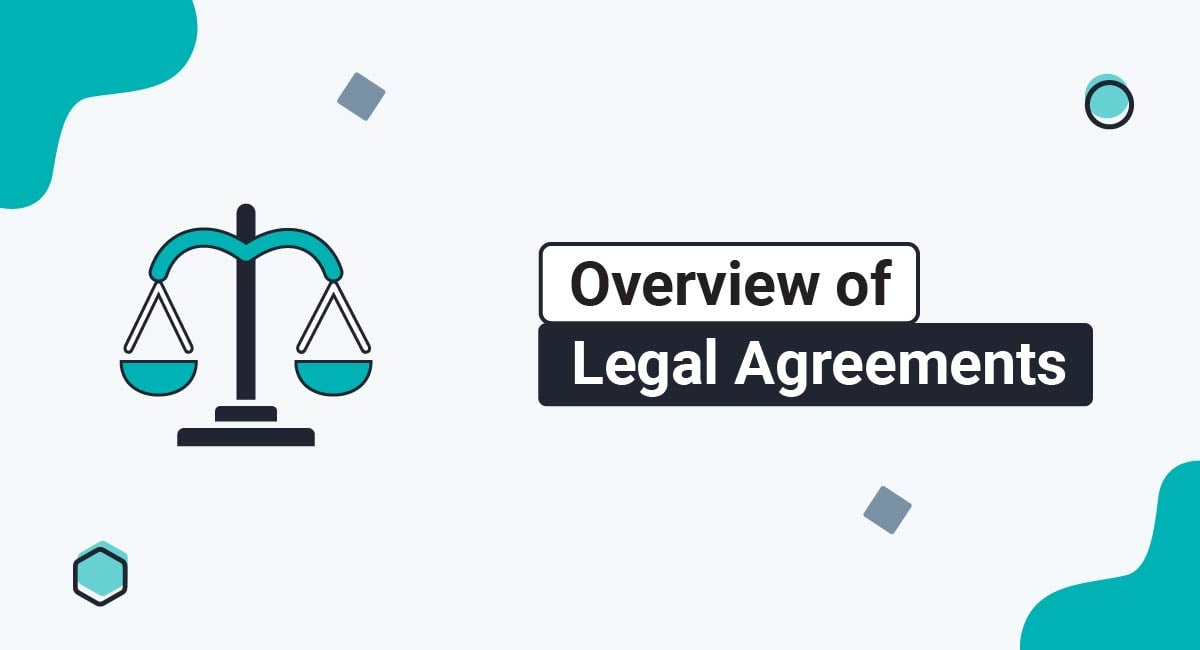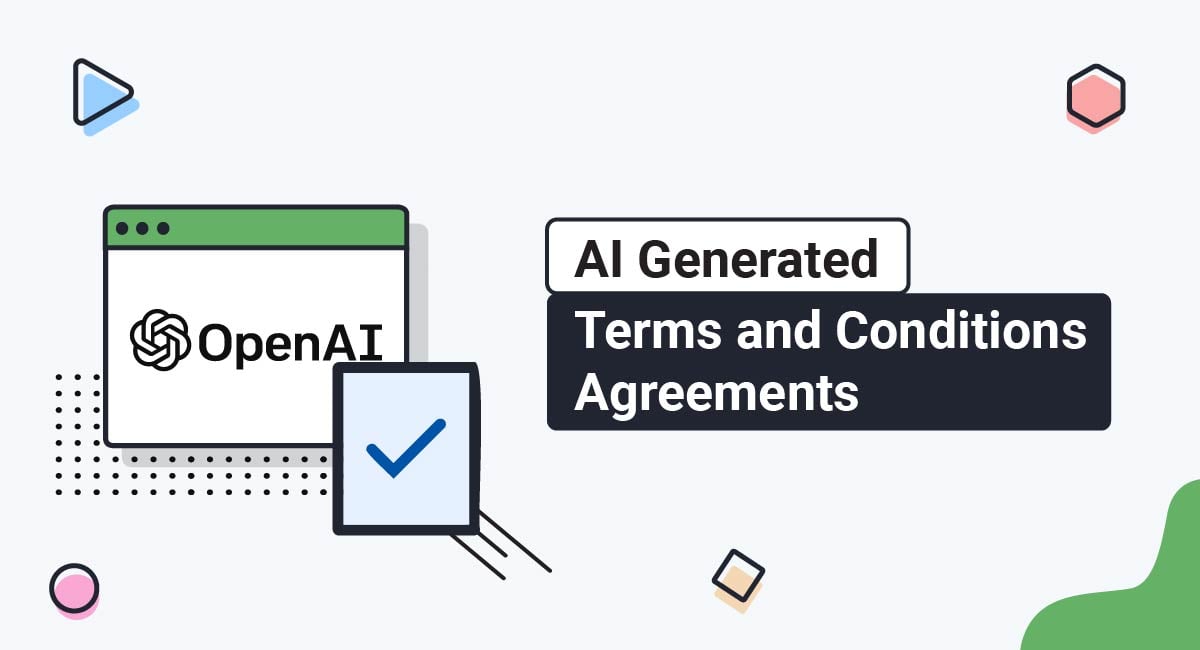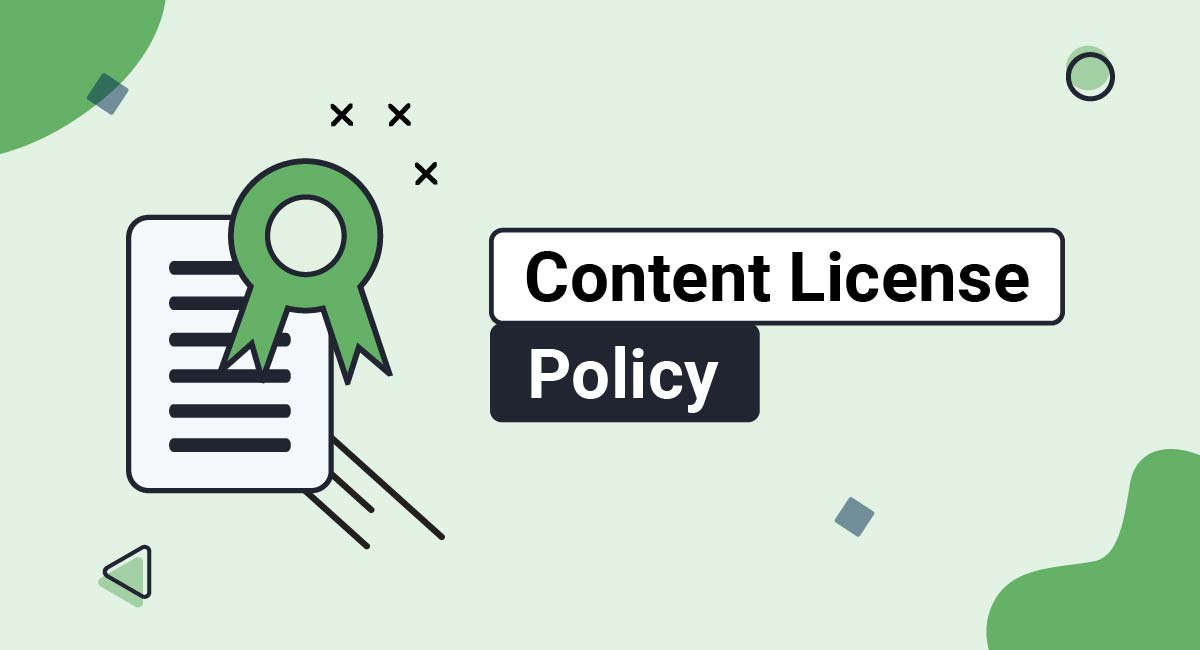
Generate a Terms & Conditions agreement for your business with the Terms & Conditions Generator from TermsFeed.
TermsFeed Terms & Conditions Generator makes it easy to generate a Terms & Conditions agreement, Terms of Service or Terms of Use for your website, app, ecommerce store, SaaS or for any projects where you need a Terms & Conditions agreement.
Generate a customized Terms & Conditions agreement that is specifically built for your unique business in a matter of minutes.
Once you've created your Terms & Conditions agreement, you can download it in multiple file formats such as HTML, DOCX, Plain Text or Markdown.
Missed an option? Changing your business practices up? Not a problem. Go back to the TermsFeed Generator and update your Terms & Conditions.
Need custom text in your Terms & Conditions? Not a problem. Use our Live Editor and apply custom edits to it.
Each Terms & Conditions agreement created by TermsFeed's Generator is hosted for free, the link doesn't expire and you can use it anywhere (such as your website footer, app store listing page, etc.)
Stay on top of things. Get notified whenever new laws and regulations require you to update your Terms & Conditions.
Tens of thousands of people are already making the most out of TermsFeed Terms & Conditions Generator.
Great Service! 10 out of 10 experience with them. Very fast and easy to use system. Very quick turnaround times with customer support and super easy system to use
Januss E.
CEO
May 31, 2024
Capterra reviews constitute the subjective opinions of individual end users based on their own experiences and do not represent the views of Capterra or its affiliates.
Excellent customer support! Fully functional system at low cost. Easy to understand.
Dave J.
Operations Director
Apr 16, 2024
Capterra reviews constitute the subjective opinions of individual end users based on their own experiences and do not represent the views of Capterra or its affiliates.
Simple and Impressive. I especially loved that there were questions to help me make the best choice. But what I really loved was how very easily I was able to get policies and terms and conditions tailored to my needs. This can be an intimidating process since I wanted to ensure compliance, but their software made it easy and definitely left me feeling very confident.
Saria K.
Owner
Nov 25, 2023
Capterra reviews constitute the subjective opinions of individual end users based on their own experiences and do not represent the views of Capterra or its affiliates.
Great, easy to use.
Kathleen N.
Owner
May 06, 2023
Capterra reviews constitute the subjective opinions of individual end users based on their own experiences and do not represent the views of Capterra or its affiliates.
Great Product! Over all I was happy using TermsFeed. It was very easy to use. Very easy to understand.
Verified Reviewer
Travel Agent
Mar 19, 2023
Capterra reviews constitute the subjective opinions of individual end users based on their own experiences and do not represent the views of Capterra or its affiliates.
A quick and easy solution to get my website up and running! So easy to use! It was super quick and affordable and I didn't need to pay for a lawyer
Verified Reviewer
Media Manager
Feb 20, 2023
Capterra reviews constitute the subjective opinions of individual end users based on their own experiences and do not represent the views of Capterra or its affiliates.
Excellent! Complying with German data protection laws. The outstanding customer service and ease of creating all the docs you need.I had just about completed a website (I design for friends, so it's not my main job) here in Germany and I needed to be sure I was complying with all data protection laws. They are very strict here, and the fines are huge. I was going round in circle but then found TermsFeed, which sorted everything out for me.
Sally U.
Business Officer
Feb 19, 2023
Capterra reviews constitute the subjective opinions of individual end users based on their own experiences and do not represent the views of Capterra or its affiliates.
My overall experience was amazing and I'm very happy to continually work with TermsFeed. Pros: How well it was compliant with todays laws and how cheap it was. I would've had to spend thousands on an attorney or lawyer to do the same thing TermsFeed did for much cheaper.
Andrew S.
Owner
Feb 17, 2023
Capterra reviews constitute the subjective opinions of individual end users based on their own experiences and do not represent the views of Capterra or its affiliates.
See everything that the TermsFeed Generator can do for your business in minutes.
Questions about Terms & Conditions Generator before you sign-up? Find the most popular questions answered below.
A Terms and Conditions agreement (T&C) is an agreement that outlines and sets forth your rules and requirements for people who use your website or mobile app.
Topics addressed in a T&C include such things as acceptable behavior by users, restricted uses of your service and the maintenance of your rights, such as the right to terminate access to people who violate your rules. Users must agree to your Terms and Conditions for them to be enforceable.
Terms and Conditions agreements are also known as Terms of Service or Terms of Use agreements. The name doesn't matter, as they all serve the same purpose: Protecting your business and keeping your users informed.
Yes, the Terms & Conditions Generator from TermsFeed is free to use.
Our agreements and policies are free. We sell optional premium agreements with additional clauses (one-time fee) that can protect your business interests better.
Yes, the Terms & Conditions Generator from TermsFeed allows you to download the Terms & Conditions document as HTML, DOCX or Plain Text.
Use the Terms & Conditions Generator from TermsFeed to create a free Terms & Conditions agreement for your business.
Copying someone else's Terms & Conditions (T&C) agreement is illegal. Under copyright laws, legal agreements (including a Terms & Conditions agreement) are protected by copyright.
There are five main reasons why a Terms and Conditions is necessary:
Unlike Privacy Policies, there are no laws that require you to have a Terms & Conditions agreement.
However, if you don't have one, you may lack the ability to enforce your rules and community guidelines, copyright protection, and be faced with other issues that could arise from the use of your website, software or app.
While you don't legally need one, you very much should want one.
Yes, you can write your own Terms & Conditions agreement. However, it's recommended that you rely on either legal partners (such as TermsFeed) or lawyers in order to write a Terms & Conditions agreement that is specific to your business.
A Terms and Conditions agreement can address any subject matter that affects the use of your website or mobile app, but some of the most common sections you'll find include the following:
Terms and Conditions agreements can vary. For example, a dating app will contain very different rules than one designed for photo sharing.
Because of the unique aspect of each business when it comes to T&C's, you will need to create your own Terms and Conditions agreement rather than borrowing one from another website or business.
These are all the same type of agreement. Terms of Service and Terms of Use indicate rules, limits, and protections just as much as Terms and Conditions. Only the names are different.
A Privacy Policy is used to inform users about how you collect, handle and use their personal information. In other words, it helps protect your users.
A Terms & Conditions agreement (T&C) is used to maintain more control over your website or app. In other words, it helps protect you as the business owner.
A T&C explains your rules, conditions of use, and other requirements regarding the use of your website or app. They provide information about topics like copyright protection, user-generated content, no tolerance policies against abuse and harassment, and how non-payment of subscription fees will be handled.
Another key difference is that while Privacy Policies are legally required, a Terms and Conditions agreement is not required under any laws.
However, having a Terms & Conditions agreement will help you enforce your rules and preserve a cause to terminate accounts if users violate your terms.
EULAs give users the right to use a copy of your software after they acquire it by way of a granted license.
A Terms & Conditions agreement is wider in scope and will dictate rules regarding the use of the software. You'll find a T&C agreement far more often, such as with ecommerce stores and personal blogs. EULAs are narrower in scope and seen less often, only with software, mobile apps and similar platforms or services.
Basically, an EULA grants users a license with limitations, and a T&C sets out the rest of the rules regarding the use of the software that don't necessarily have to do with the license.
Because laws require a Privacy Policy, and one that's easily accessible, you're better off separating these agreements.
While you can cross-reference each agreement by mentioning your T&C in your Privacy Policy and vice versa, you should never rely solely on your Terms & Conditions to present your Privacy Policy or you risk being out of compliance with privacy laws.
Your mobile app should definitely have a Terms & Conditions agreement. Mobile apps require rules of use as much as websites and software platforms do.
This is especially true if your app encourages interaction, shares content or contains a subscription service.
Your mobile app will reap all the same benefits your website will get from having a T&C in place.
If your product or service operates on both an app and a website, you do not necessarily need to draft separate Terms & Conditions agreements for each platform. You can usually just create one Terms & Conditions that applies to both.
In fact, having just one overarching T&C is recommended so you don't risk having inconsistent terms and or creating unnecessary confusion for your users.
Normally, an app and website are similar enough that one T&C can apply to both. But as always, there are exceptions.
Your T&C should be easily and freely accessible at any time. You should place a link to your Terms and Conditions agreement in the following places:
For your T&C to be enforceable, you need to get your users to agree to it.
The best way to do this is with a clickwrap method, which means asking your users to click something to show they consent to your T&C. For example, when a user creates an account on your website, you can ask them to click a checkbox next to a statement that says, "I agree to be bound by these Terms and Conditions."
You can also ask them to click a button that says something like "I Agree" and is placed close to a statement that makes it clear that by clicking the button, they're agreeing to your T&C.
You should ask for agreement as soon as possible in your relationship with the users, such as when they open your app for the first time or create a user account on your website.
Practical knowledge about Terms & Conditions agreement to help your business get (and stay!) compliant.

Whether your website collects users' data or content to train AI or you want to keep third parties from extracting data from your website for AI training purposes, legal agreements can help protect your business. This article explains why you need legal agreements for AI training and how to comply with.

If you conduct business online, it's important to have links to clearly written, up-to-date legal agreements available on your website. In some cases, maintaining these agreements is legally required, while in others it's just plain good business practice. This article provides an overview of some of the most common legal agreements.

Is it a good idea to use AI to create your legal agreements, such as Terms and Conditions agreements, Privacy Policies, EULAs, Cookies Policies, Return and Refund Policies, and Disclaimers? We believe it is not a good idea, and this article will explain why. We used a popular AI tool, ChatGPT.

AI is everywhere these days. But should you use it to generate a Terms and Conditions agreement (T&C)? This article will explain the limits of AI by using it to create actual Terms and Conditions agreements and then comparing the results to professionally-created Terms agreements. What is AI and ChatGPT? Artificial Intelligence.

Any business that provides services to its customers should consider having a Customer Service Agreement (CSA) on its website. A Customer Service Agreement informs customers about what they can expect when they purchase your services, and their obligations when using your services. This article will take you through what a Customer.

Content License Policies (also known as Content License Agreements) are legal documents that outline the rights and limitations surrounding the use, distribution, and modification of your content. As businesses continue to expand their online presence and create new content, understanding these documents has become increasingly important. By establishing clear Content License.
Comply with the law with our agreements, policies, tools and cookie consent banners. Everything you need is included.
Disclaimer: Legal information is not legal advice, read the disclaimer. The information provided on this site is not legal advice, does not constitute a lawyer referral service, and no attorney-client or confidential relationship is or will be formed by use of the site.
Copyright © 2012 - 2024 TermsFeed ® . All rights reserved.